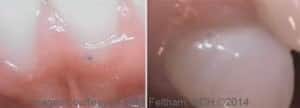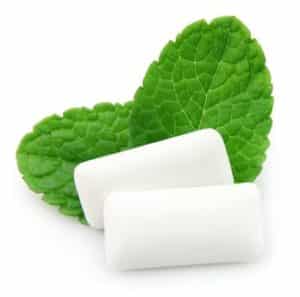You brush your teeth twice a day with toothpaste, but how do you choose which toothpaste you use? For some of us, we probably use the same brand we’ve used for years. For others, we might be swayed by the latest marketing or label on the toothpaste that claims our teeth will be whiter, less sensitive, or our breath will be fresher. But what should we know before buying our next tube?
“There are so many different kinds of toothpaste on the market today, it can be hard to wade through and look past the marketing gimmicks to see what really works,” says Dr. David Brusky. “In our office, there are a few things we tell patients to avoid because they are simply marketing gimmicks, as well as certain things they might want to look for when heading to the drug store next.”
A few years ago, microbeads became the rage in personal care products, everything from toothpastes to face washes contained them. They were approved by the Food and Drug Administration, so people assumed they were safe. But dentists began to notice some issues in patients who used popular brands of toothpaste that contained microbeads.
The beads don’t disintegrate, and aren’t biodegradable, so dentists became concerned they could get trapped in between teeth and in the gums. And that could then lead to accumulation of bacteria, which could lead to gum disease. President Obama signed a ban on the use of microbeads in cosmetic products, but the ban doesn’t take effect until mid-2017. If you currently have toothpaste that contains microbeads lying around, throw it out and buy a new brand.

Another ingredient to avoid if you are prone to gum irritation and/or aphthous ulcers is sodium lauryl sulfate (SLS). It has been shown to increase the frequency of aphthous ulcers and can block taste buds.
For patients with sensitive teeth, Dr. Brusky encourages them to avoid toothpastes that contain peroxide, baking soda, triclosan, or that claim they are tartar controlling or have teeth whitening agents.
Whitening toothpastes are generally a gimmick. They can remove extrinsic stains, that is true, but the abrasive nature of the toothpaste can actually brush away more tooth structure than is healthy. That means any exposed root surfaces will likely wear at a greater rate, exposing nerve endings in the dentinal tubules and increase sensitivity.
“My office sells them that are designed to both decrease sensitivity and re-mineralize a patient’s teeth,” says Dr. Brusky. “Unfortunately they are not available in most pharmacies and since they are by prescription, we have to sell them. We sell a lot of a paste called Fluoridex, which contains the same amount of fluoride that is in a professional fluoride treatment routinely given to kids every six months. It also contains potassium nitrate, which is the most common desensitizing ingredient found in sensitive toothpastes. I not only recommend it, I use it and my entire family uses it.”
He also uses a brand called Enamelon, which isn’t technically labeled a paste because it does not contain abrasives. He believes that for patients who are effective brushers, the abrasives that are commonly found in toothpastes aren’t needed. If you pay extra attention to your brushing technique, the mechanics of your brushing can effectively remove plaque.
“I use Fluoridex with my morning brushing, and Enamelon in the evening before bed,” says Dr. Brusky. “With these two pastes combined, I have noticed that my root sensitivity has completely resolved itself. The key to using these products, or for any toothpaste for that matter, is to spit out the excess foam but not to rinse your mouth out. That just washes out the beneficial ions that are responsible for remineralizing the teeth.” Fluoridex comes in a non-SLS formula and Enamelon doesn’t contain SLS at all.
He also advises his patients to look for toothpastes that contain Xylitol. Xylitol is a natural sweetener that doesn’t break down like regular sugar does in your mouth. Many of them may contain aspartame or another sweetening agent, but Xylitol has positive oral health benefits.
“Xylitol can actually prevent the bacteria that feed on other sugars from sticking to the teeth while helping to maintain a neutral pH balance in your mouth,” says Dr. Brusky. “Xylitol has also been proven to help repair damage to the enamel, and may even be able to help repair early cavities.”
Everyone’s teeth are different and require varying types of dental care and preventive measures. To determine which toothpaste is ideal for you, it is best to skip the marketing gimmicks and go straight to the expert – your dentist. Your dentist will have the unique knowledge about your oral health as well as how the ingredients in toothpaste work to recommend the best of it to keep your mouth as healthy as possible.






